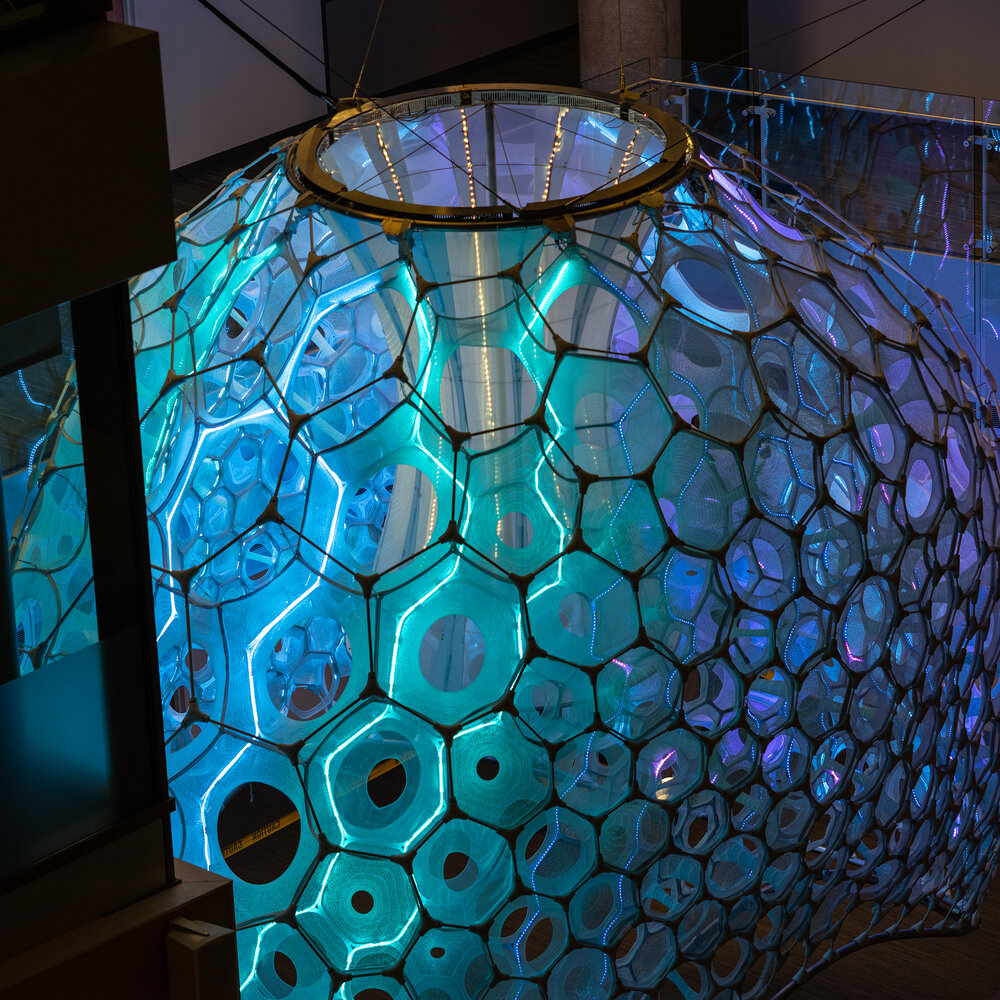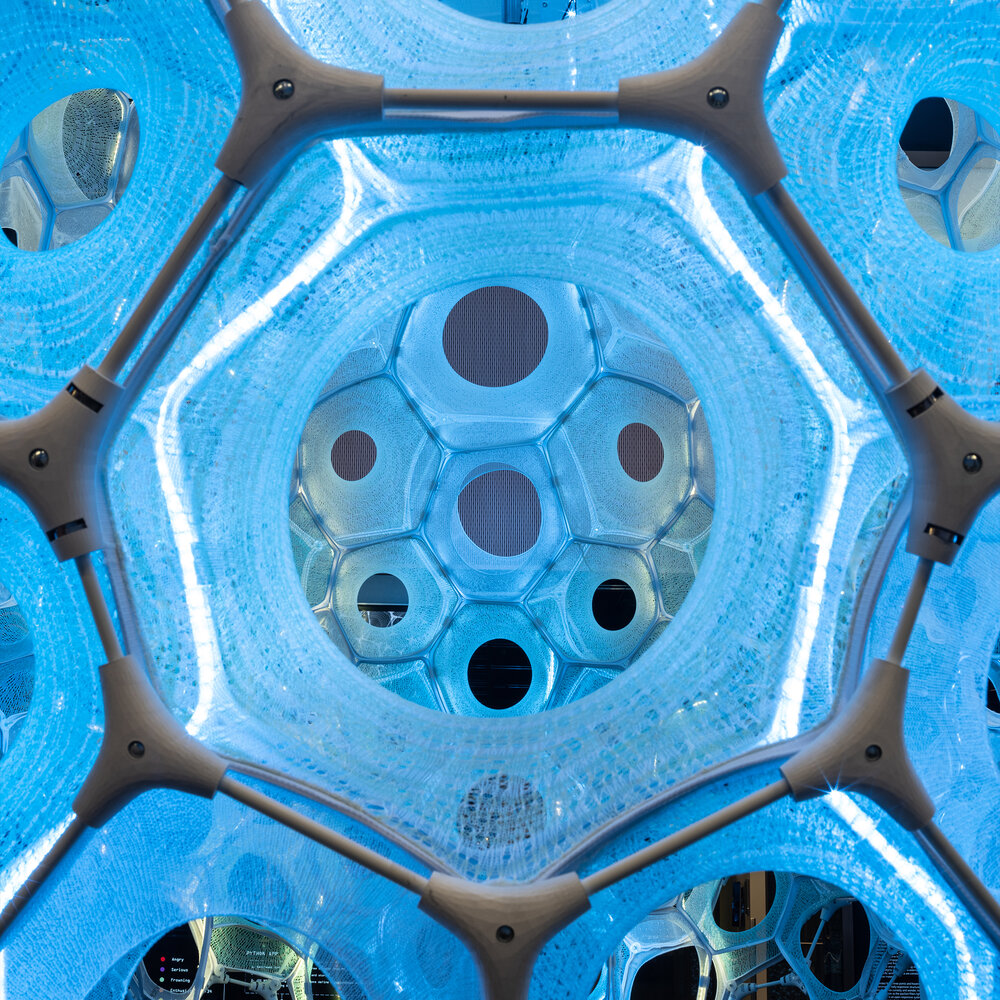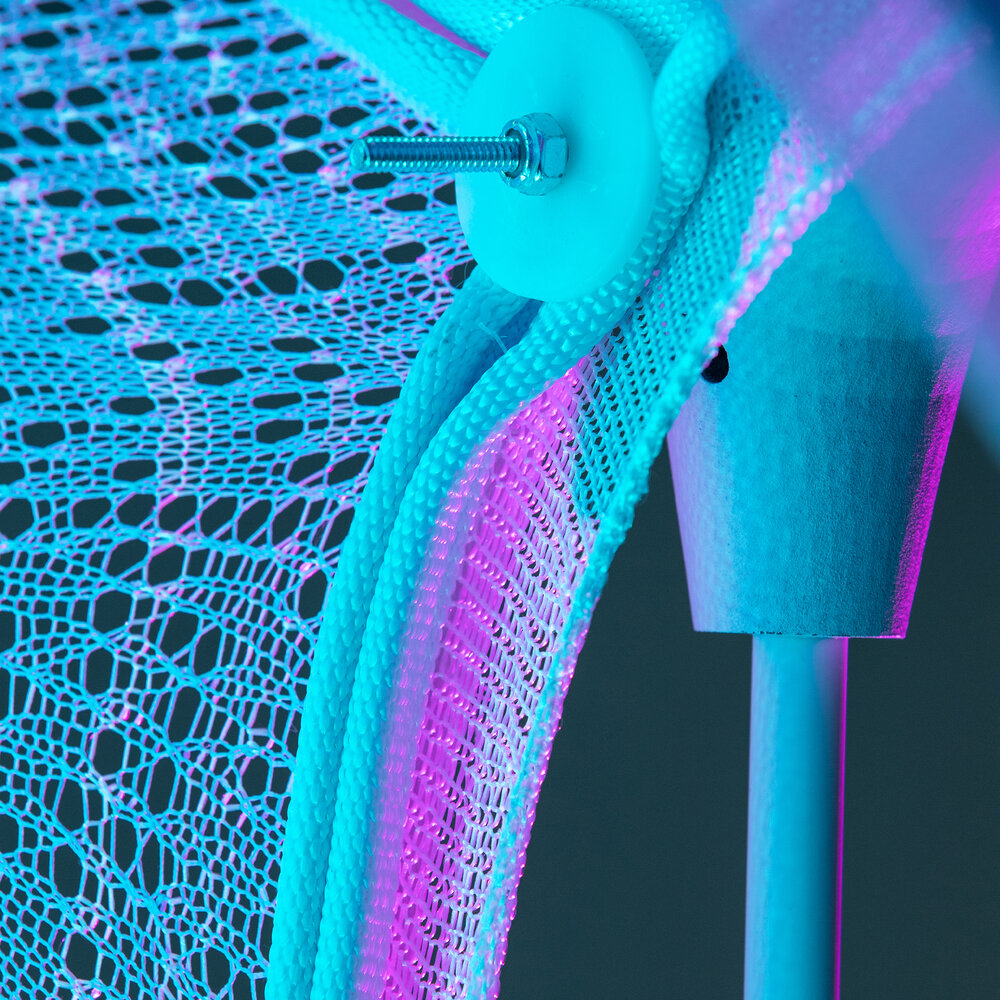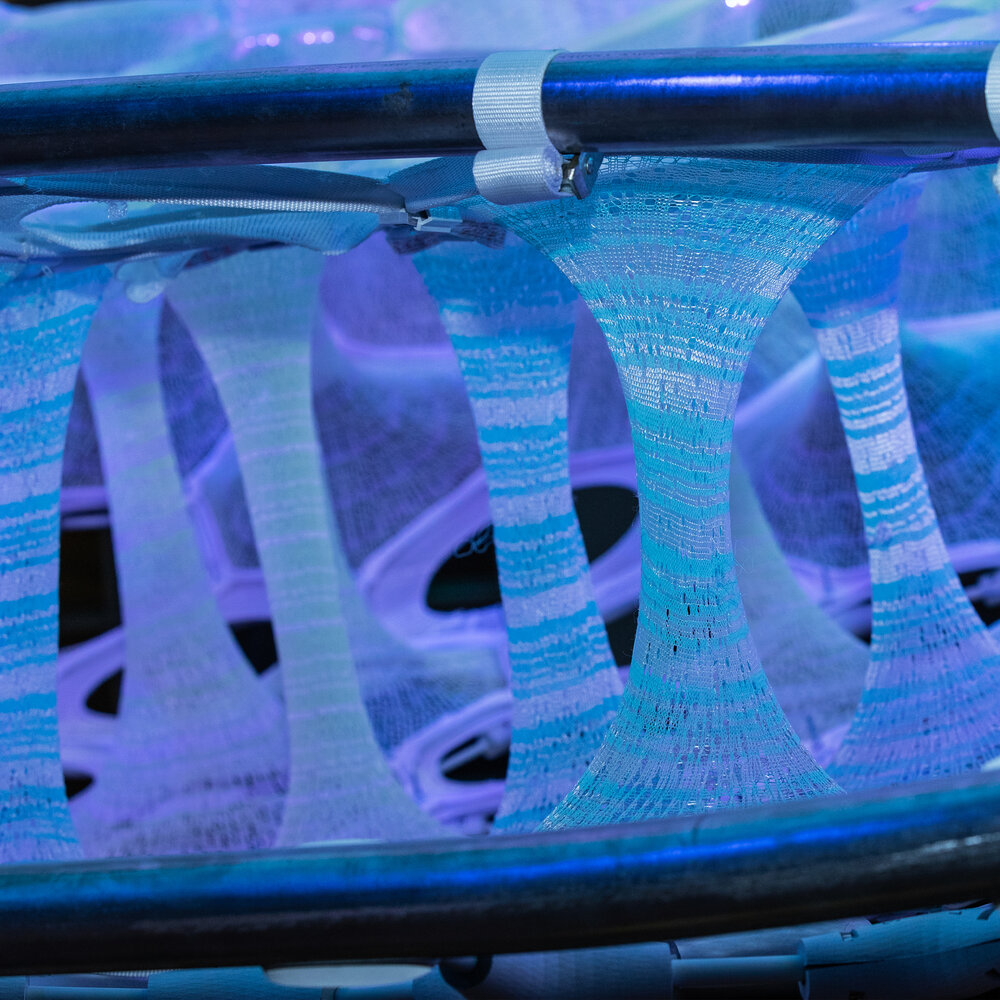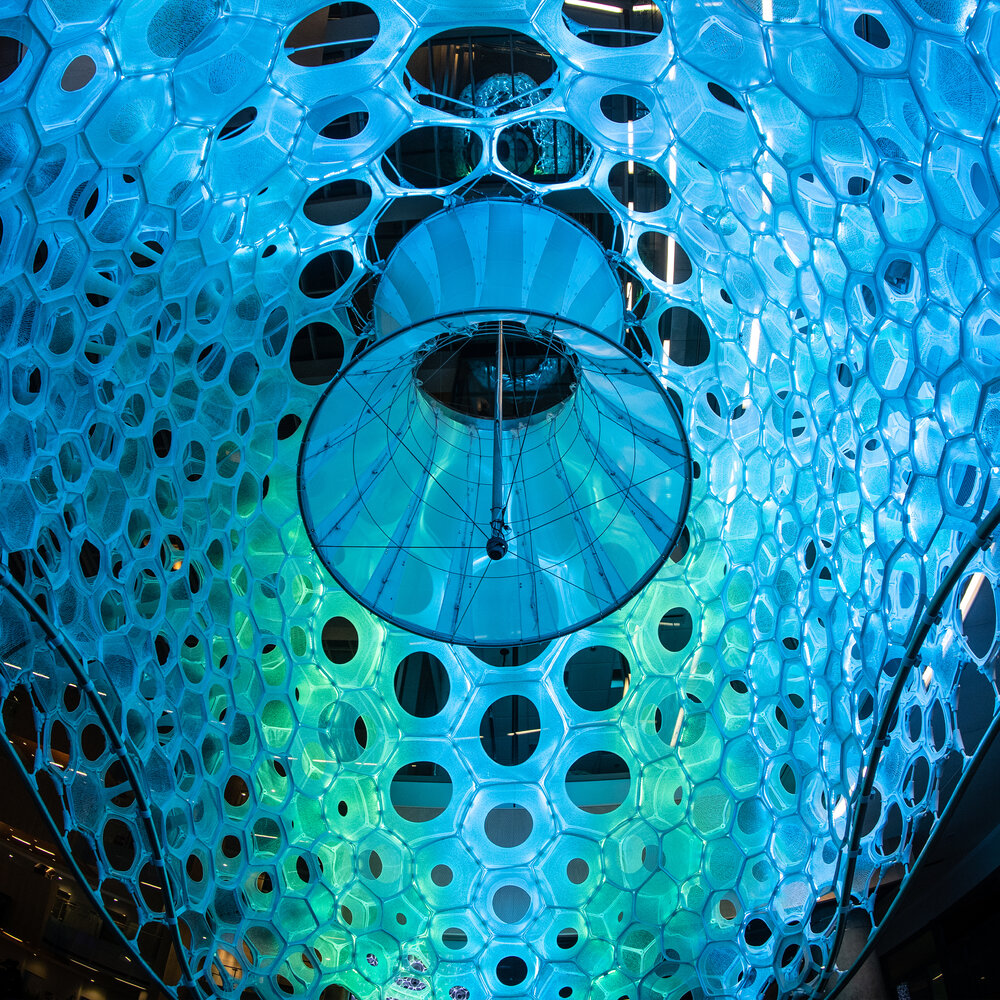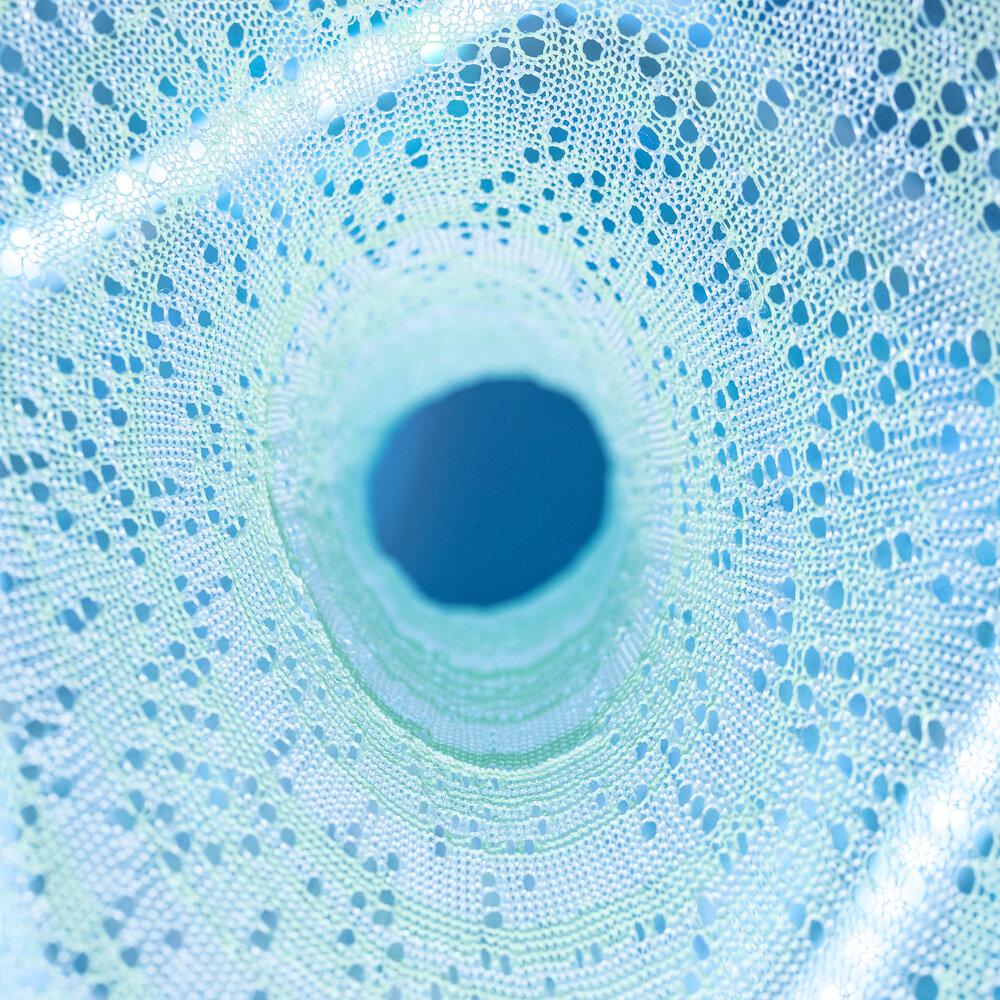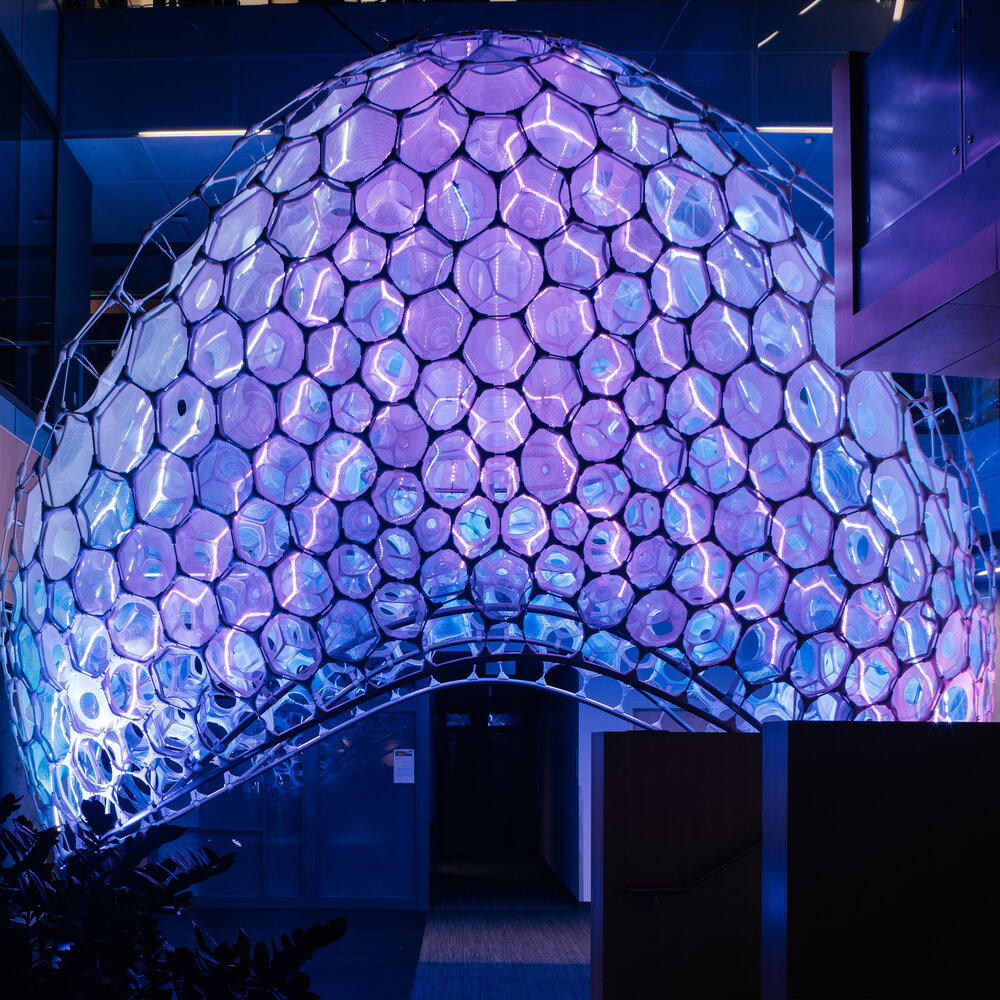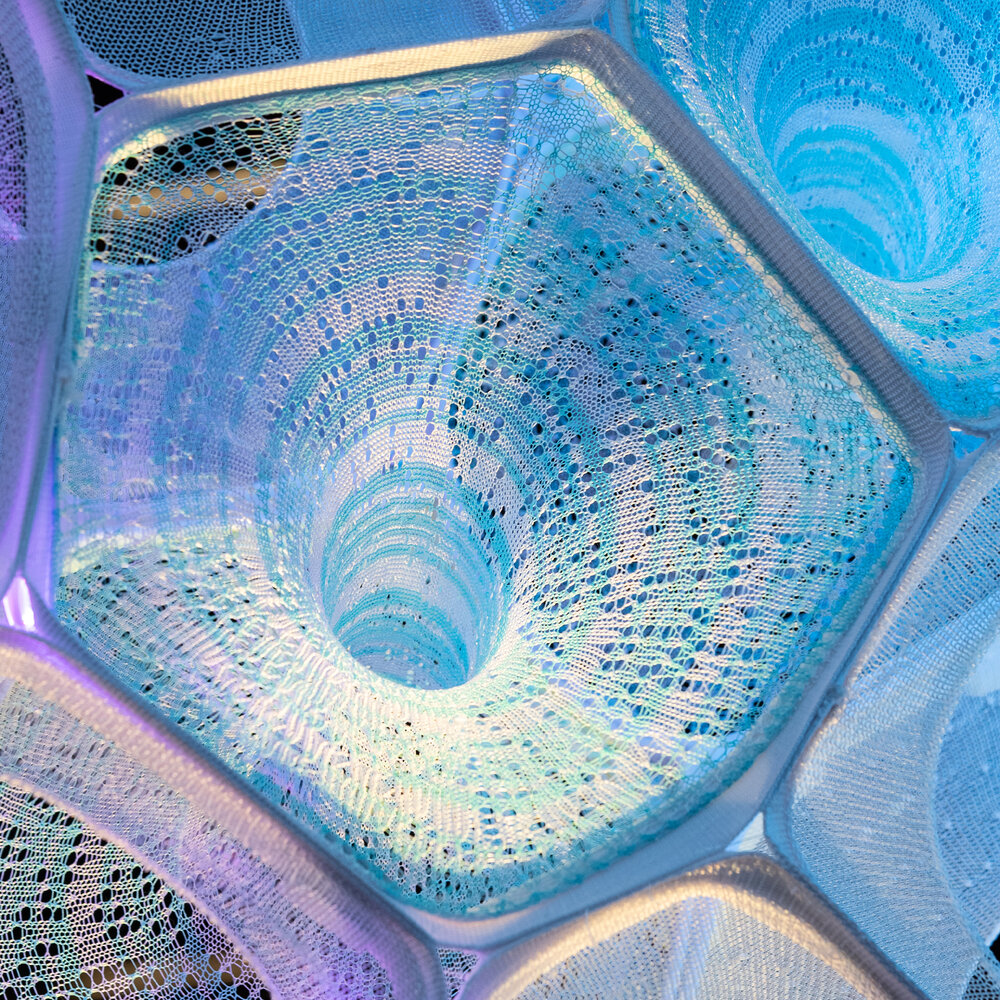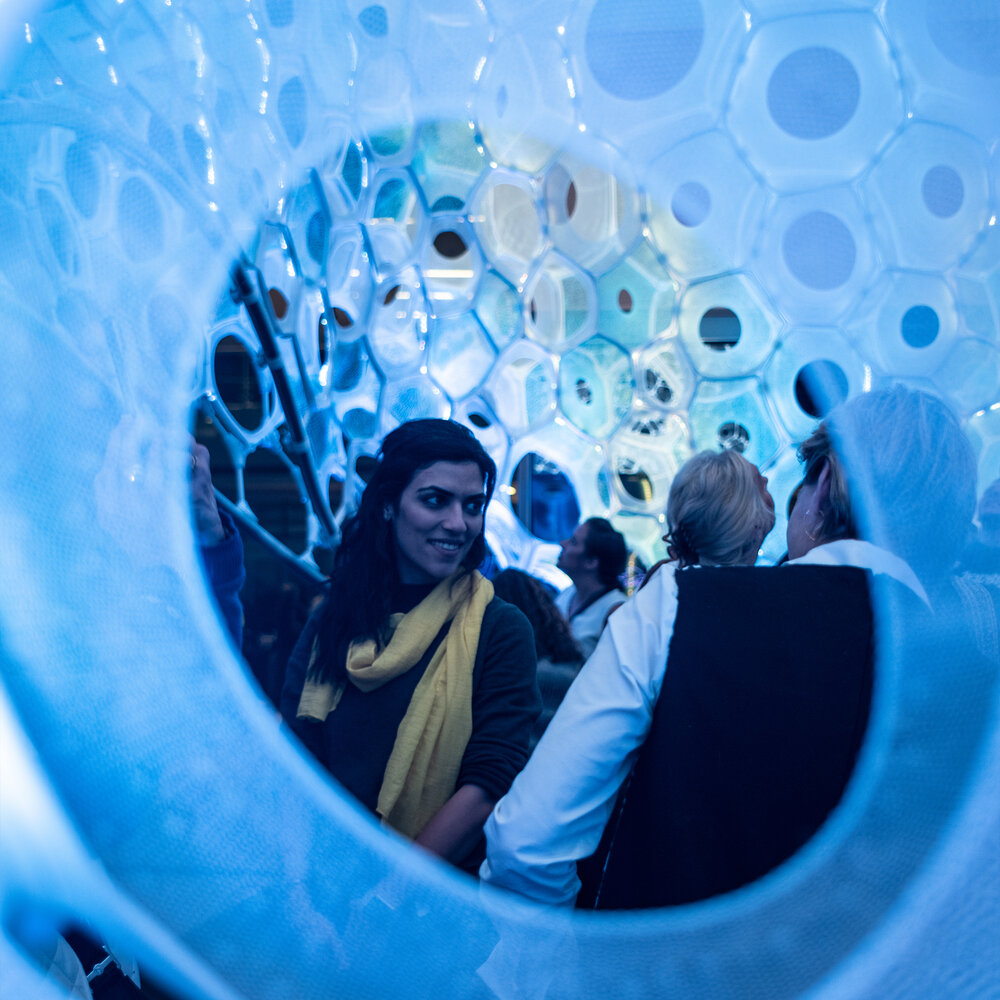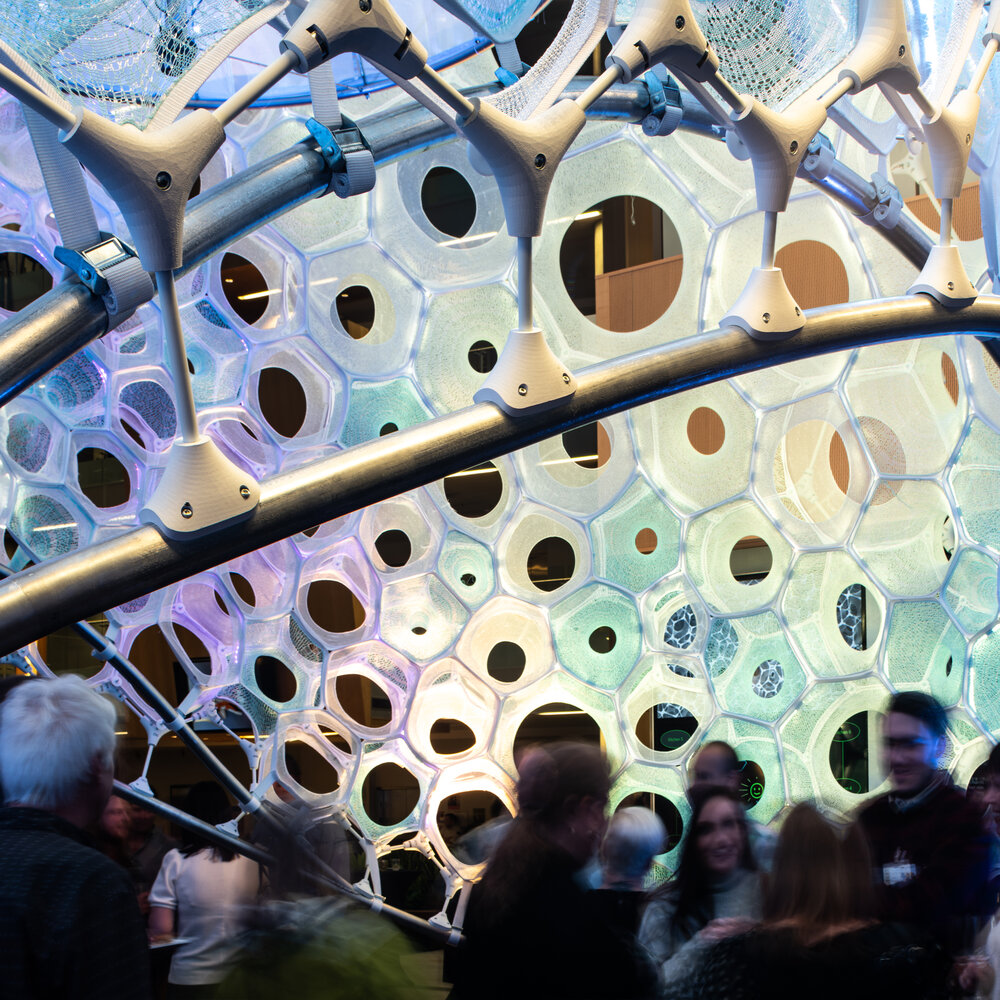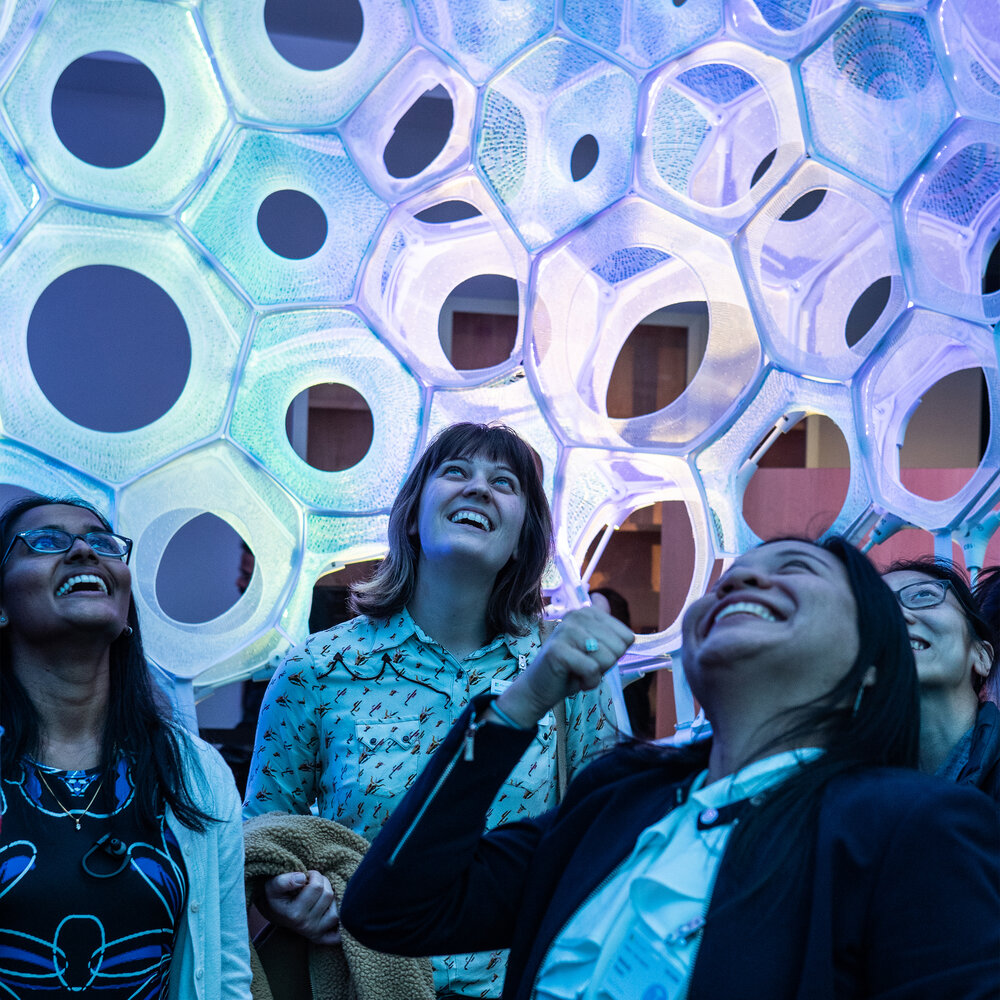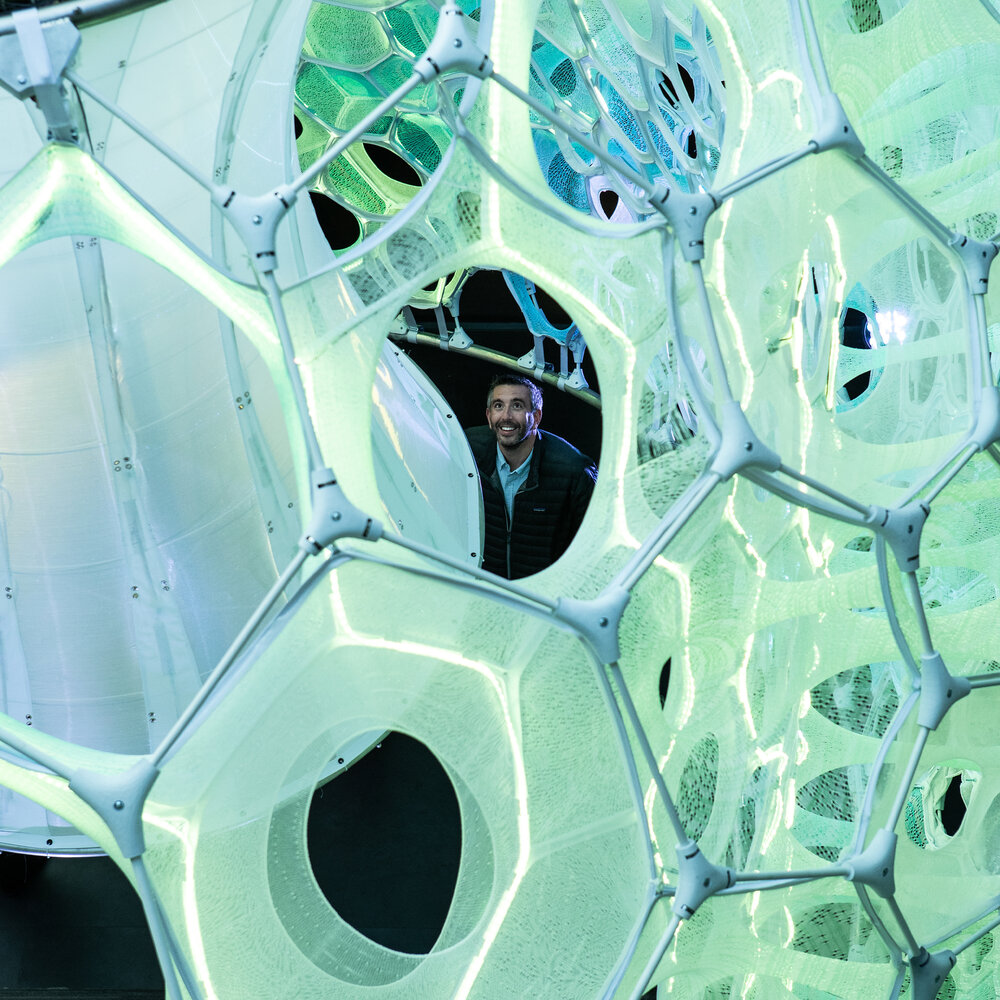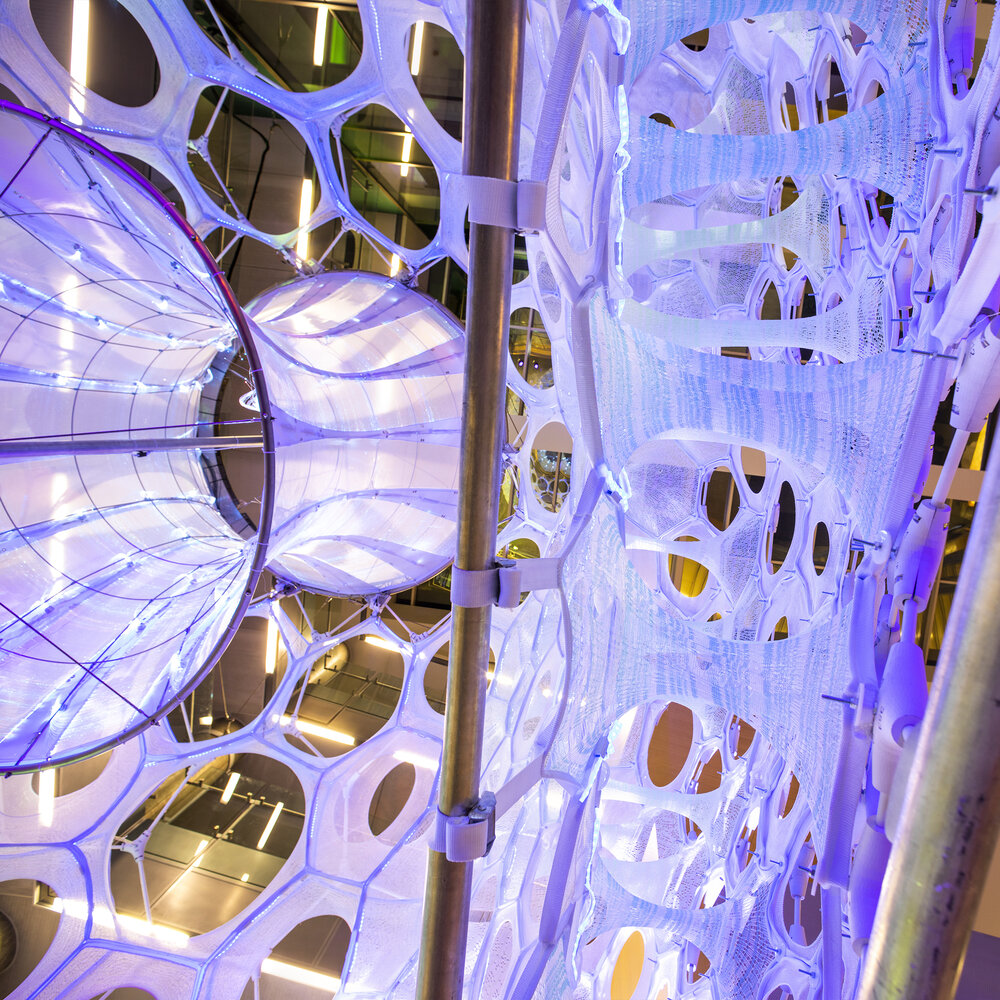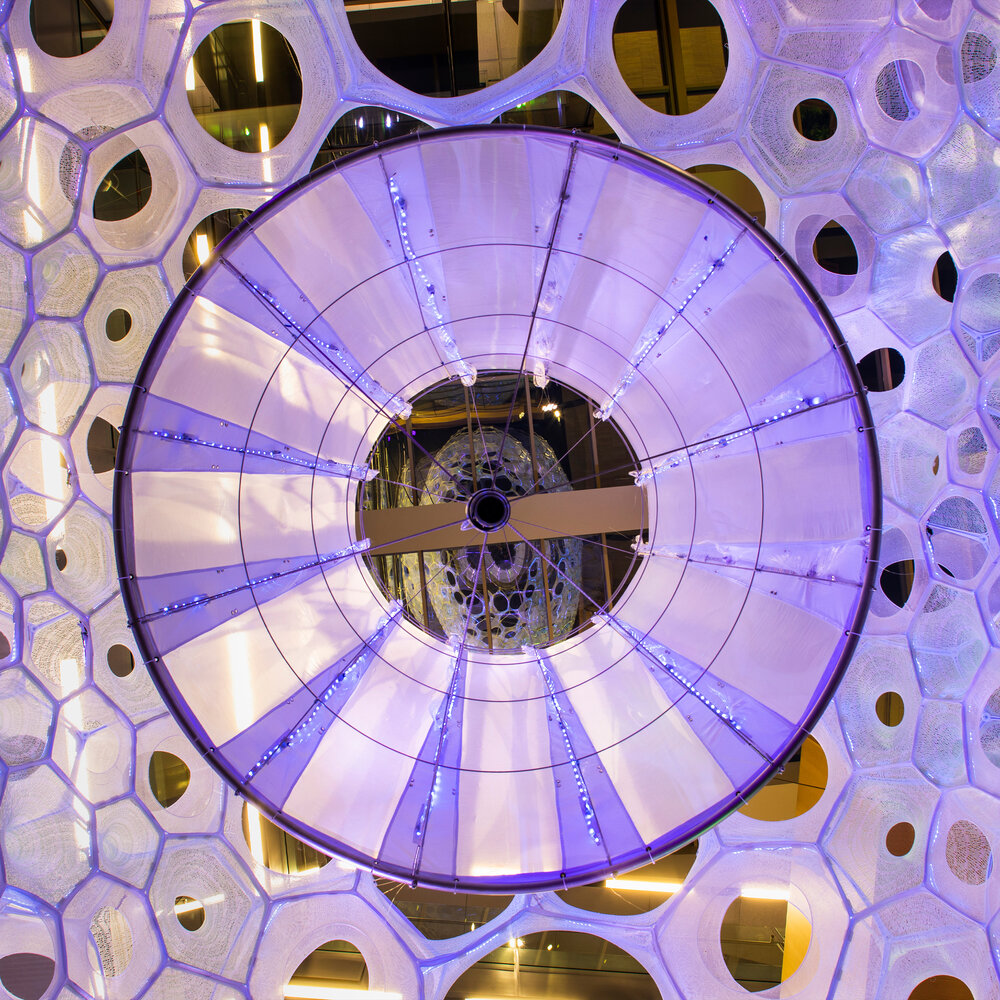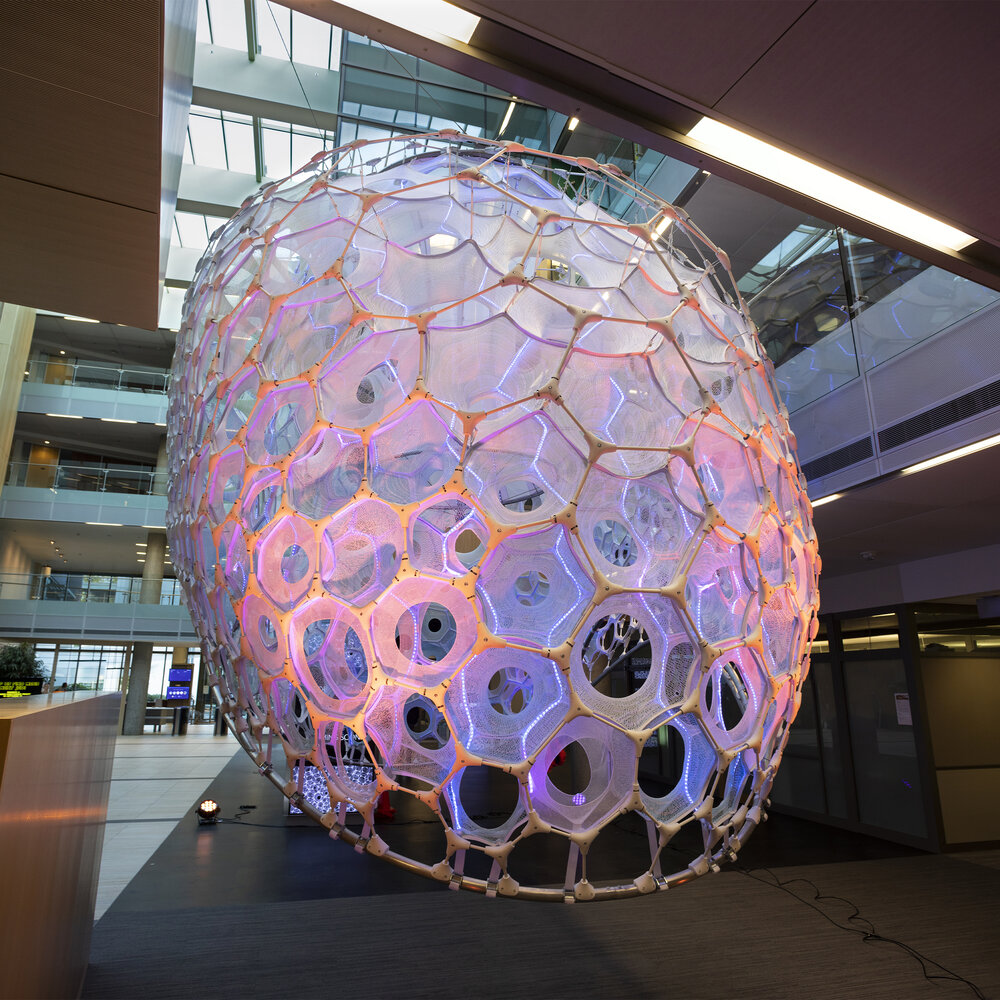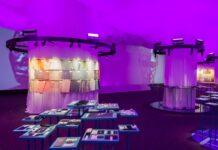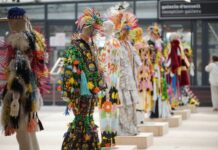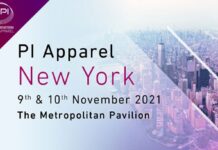Ada, by Jenny Sabin Studio, is a collaborative project with Microsoft Research that embodies performance, material innovation, human-centred adaptive architecture and emerging technologies, including Artificial Intelligence (AI). The project also employs flat knitting technology in the form of Shima Seiki’s WHOLEGARMENT.
Named after the polymath, mathematician, first computer programmer, and early innovator of the computer age, Ada Lovelace, Ada “builds upon 13 years of collaborative work and innovation across architecture and science, where projects embrace and are informed by technology, non-standard and bio-steered concepts, and the hidden spatial structures within data; projects that have the capacity to facilitate and reveal hidden expressions and emotion in the built environment,” Jenny Sabin Studio reports.
The installation is suspended in the airy atrium of building 99 on Microsoft’s Redmond, Washington, campus. The installation is thought to be the first architectural structure to be driven by artificial intelligence in real time, according to Jenny Sabin, principal designer at Jenny Sabin Studio in Ithaca, New York, who designed and built the pavilion as part of Microsoft’s Artist in Residence program.
Jenny Sabin Studio provides the following project details:
“The first architectural pavilion project to incorporate AI, Ada is also knitted light, immersing visitors in a responsive and interactive glow of photoluminescence. Importantly, Ada is human-driven; Ada is a cyber physical architecture that is adaptive, personal, data-driven and informed by individual and collective participation. It is a project that celebrates AI, an architecture that is ‘happy to see you’ and ‘smiles back at you’.
A lightweight knitted pavilion structure of responsive and data-driven tubular and cellular components employs textiles and photo-luminescent fibres that absorb, collect, and emit light. An external rigid experimental shell structure assembled from a compressive network of 895 unique 3D printed nodes and fibre glass rods holds Ada’s form in continuous tension.
Working with researchers and engineers at Microsoft Research, Ada is driven by individual and collective sentiment data collected and housed within the Microsoft Research Building 99. A network of sensors and cameras located throughout building offer multiple opportunities for visitors and participants to engage, interact with, and drive the project.
The data includes facial patterns, voice tones, and sound that are processed by AI algorithms and correlated with sentiment. Three scales of responsive and gradated lighting including a network of addressable LEDs, a custom fibre optic central tensegrity cone, and five external PAR lights respond in real time to continuous streams of data. Specific sentiment data are correlated with colours, spatial zones within the project, and responsive materials.
Suspended from three points and hovering above the ground floor of the atrium, Ada is a socially and environmentally responsive structure that is interactive and transformative.
This environment offers spaces for curiosity and wonder, individual and collective exchange, and rigorous research experimentation as the pavilion filters light, casts dynamic shadows, and changes in response to your input. It is an open responsive system featuring digitally knitted lightweight, high-performing, formfitting, and adaptive materials. Ada is information with and for you.”
The making of Ada, Microsoft’s latest artist in residence installation…
Read the full story on Microsoft’s The AI Blog – Smiles beam and walls blush: Architecture meets AI at Microsoft
Microsoft Research Artist in Residence (AIR) 2018-2019. Photos by John Brecher and Jake Knapp for Microsoft.

Subscribe To Our Newsletter
Join our mailing list to receive the latest news and updates from our team.


